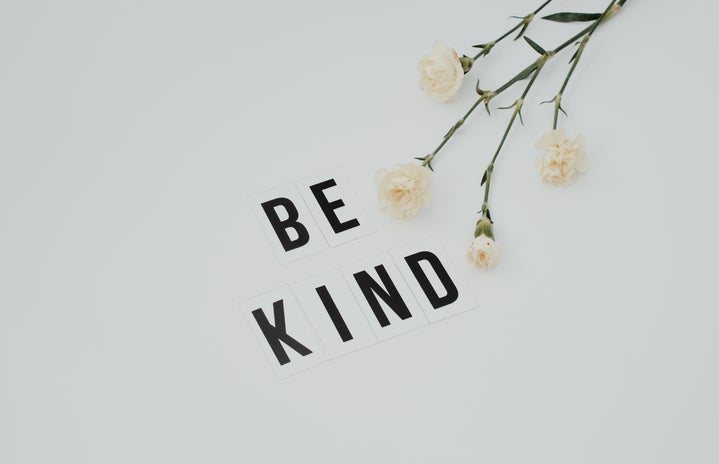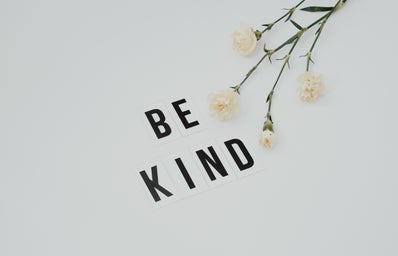Plastered all over my Instagram explore page are posts about why you should love yourself. Often in the form of body positivity, self-love is advocated through quotes about feeling confident in your skin no matter what, never comparing yourself to others and finding beauty in your “flaws.” In theory, this is a wonderful concept, as having a low self esteem undoubtedly wreaks havoc on your energy and mind. But is “self-love” the only alternative to feeling pessimistic about oneself, and what happens if self-love becomes destructive rather than helpful?

It may sound strange to challenge something as seemingly beneficial and optimistic like “self-love.” I take issue with how self-love is framed in the media, and how it perpetuates the tropes that it wishes to diminish. In social media’s body positivity discourse, it is often said that you should love your face and/or body despite having acne, love-handles, hip-dips, stretch marks, cellulite, etc. These posts, by purposely including the attributes that one may be insecure of, already insinuate that these features are perceived as bad. I personally did not even know what a hip-dip was until I saw a Pinterest quote along the lines of “Don’t let people make you feel bad about having hip-dips!”
Even posts telling you to love these features tend to strike me the wrong way. As someone who has had acne here-and-there since middle school, it has never been something that I have loved and nor will it ever be. It merely is something I have just accepted about myself and that I do not need to feel animosity or positivity towards. Some days I will want to cover it up with makeup, some days I will not. It is not that I want to be insecure about acne, but I do not feel the urge to necessarily love it.

Rather than advocate for self-love, I am much more interested in the practices of body neutrality and self acceptance. Although I do not mean to dismiss people’s self love as trivial, –– if it is an important aspect in your life, I think that is a tremendous thing –– the fact that we, as a society, have to even fixate on our bodies in the first place is the problem. We should not have to hate or love our bodies, or believe that this binary is the only way we can have a relationship to our physical selves. We can respect our bodies through healthy-living, movement and well-rounded diets. We can accept that there are things about us that we don’t like, and that rather than changing this dislike to love, we can devote this attention to another task entirely. I will never like a pimple that springs on my forehead, but this doesn’t mean I will hate myself for it. Divorcing ourselves from the ego-centric philosophy of having to choose between love and hate and instead finding a sense of acceptance, neutrality and peace with ourselves is, I believe, the more crucial pursuit.
Once again, I say this not to disparage those who have found solace and joy from the self-love movement. This is also in reflection of how at the happiest moments of my life, I was not thinking about my body in either a negative or positive way. I was not engaging in self-love or self-hate –– just no thoughts about my body whatsoever. As someone who has struggled with body dysmorphia and an eating disorder, it is in times where I do not perceive my body that I feel the best. This also doesn’t mean that I think it is wrong to view ourselves or others as beautiful. As human beings we are innately driven to judge others on how they look, but of course with our friends and significant others we know that there is more depth than just physical appearances. Although we do not have to love our bodies, we can still accept compliments and find others attractive, but also understand that a person’s value and worth goes far beyond this. Still, this is a hard dichotomy to balance –– when does confidence turn into obsession? –– but I think it is possible for neutrality to coexist with our human inclinations for confidence and beauty.

It is far more powerful to reject the impulse to self-loathe and hate by rejecting the urge to think about oneself in a superficial manner in the first place. Instead of feeling pressured to love your body –– whether thin or curvy, small or large –– to not even meditate on your appearance in the first place is the more liberating and mindful choice. In an article published by The Guardian, psychotherapist Alison Stone articulates the freeing nature of body neutrality: “When we spend less time thinking about our bodies, it affords us room to focus on other things.” Without the urge to feel strongly about how we look, our energy can instead be devoted to the people in our lives, our passions and hobbies, and working on ourselves in a more holistic light. Despite a state of self-acceptance being hard to maintain in a world where we are taught to either love or hate ourselves, being aware that neutrality is achievable in the first place is a form of progression.



